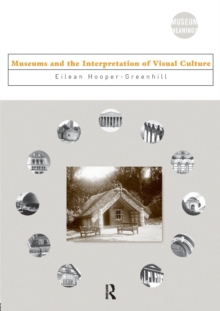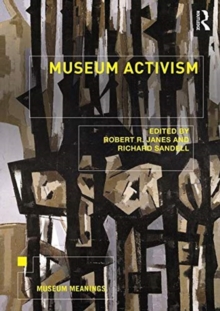
Museum Activism PDF
Edited by Robert R. Janes, Richard (University of Leicester, UK) Sandell
Part of the Museum Meanings series
Description
Only a decade ago, the notion that museums, galleries and heritage organisations might engage in activist practice, with explicit intent to act upon inequalities, injustices and environmental crises, was met with scepticism and often derision.
Seeking to purposefully bring about social change was viewed by many within and beyond the museum community as inappropriately political and antithetical to fundamental professional values.
Today, although the idea remains controversial, the way we think about the roles and responsibilities of museums as knowledge based, social institutions is changing.
Museum Activism examines the increasing significance of this activist trend in thinking and practice. At this crucial time in the evolution of museum thinking and practice, this ground-breaking volume brings together more than fifty contributors working across six continents to explore, analyse and critically reflect upon the museum’s relationship to activism.
Including contributions from practitioners, artists, activists and researchers, this wide-ranging examination of new and divergent expressions of the inherent power of museums as forces for good, and as activists in civil society, aims to encourage further experimentation and enrich the debate in this nascent and uncertain field of museum practice. Museum Activism elucidates the largely untapped potential for museums as key intellectual and civic resources to address inequalities, injustice and environmental challenges.
This makes the book essential reading for scholars and students of museum and heritage studies, gallery studies, arts and heritage management, and politics.
It will be a source of inspiration to museum practitioners and museum leaders around the globe.
Information
-
Download - Immediately Available
- Format:PDF
- Pages:436 pages, 5 Tables, black and white; 35 Halftones, black and white
- Publisher:Taylor & Francis Ltd
- Publication Date:10/01/2019
- Category:
- ISBN:9781351251037
Information
-
Download - Immediately Available
- Format:PDF
- Pages:436 pages, 5 Tables, black and white; 35 Halftones, black and white
- Publisher:Taylor & Francis Ltd
- Publication Date:10/01/2019
- Category:
- ISBN:9781351251037










